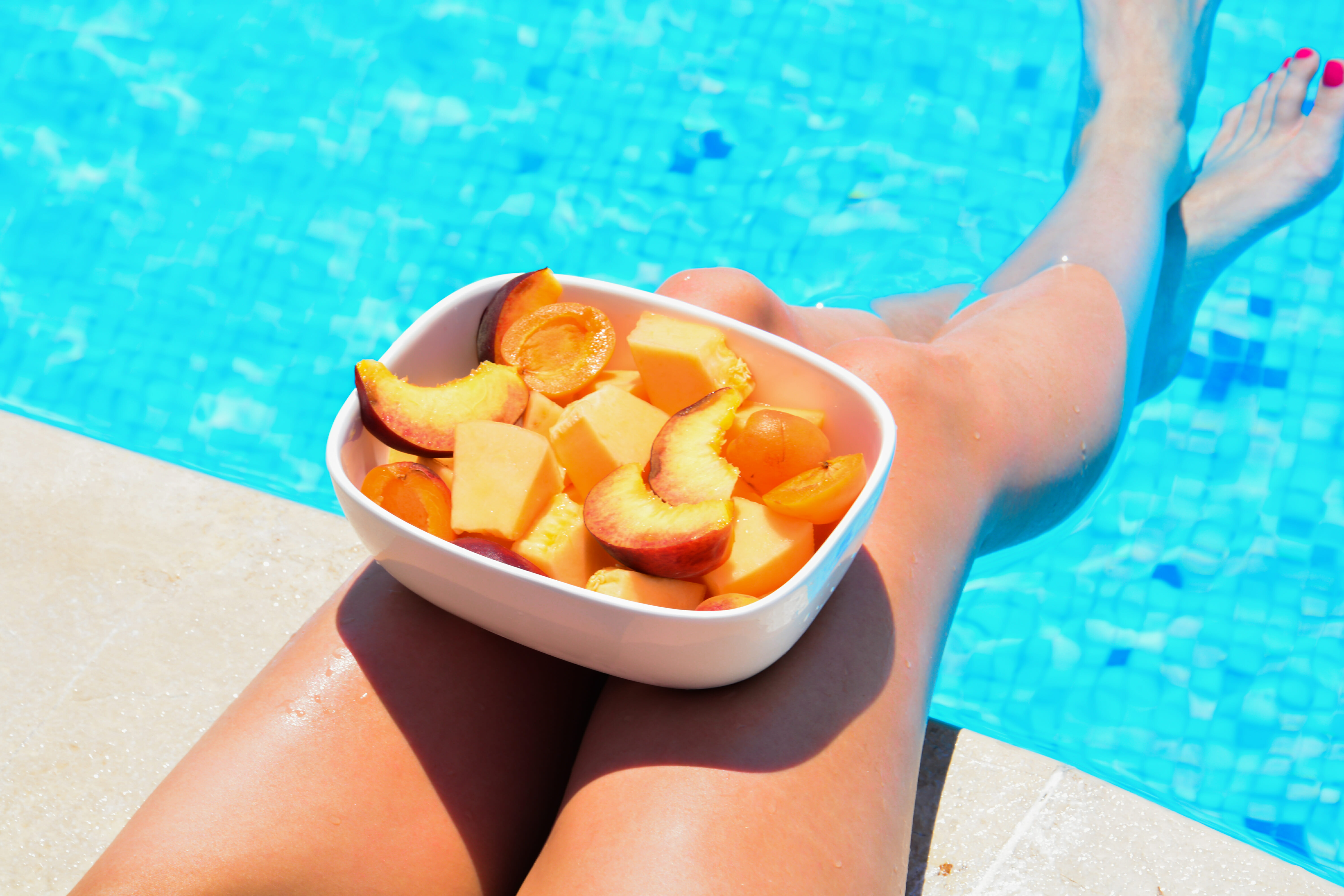Who hasn’t heard the rule that you have to wait 30 minutes after eating to swim? It’s a rule that some follow religiously. This and other myths about swimming have a way of creeping into our belief systems. Unfortunately, many of these so-called facts can prevent you from achieving your best as a swimmer.
At Blue Buoy, we’re here to help you! Our swimming experts are here to help you improve your swimming knowledge. Below, find the top 6 swimming myths debunked:
1. Don’t Swim After Eating
Our mothers said it, so it must be true, right? Whether your caregiver warned you that you’d get a cramp and drown or that all the blood would rush to your stomach after eating, leaving your extremities without energy to swim (and again, you’d drown!), the truth is, it’s a myth. While it’s true that some athletes may get a cramp from overeating too close to swimming time, a small snack will give you the energy you need to perform while in the water.
Most swimmers can safely enjoy a small sandwich or protein bar before hopping into the water. In fact, ensuring you keep your blood sugar up is much preferable to suffering a dizzy spell in the water due to hunger. So, don’t go out for spicy wings and then hop straight in the pool, but feel free to have a small snack ahead of time.
2. Hold Your Breath!
This may be more instinctual than anything else, but the idea that you have to hold your breath underwater is a myth. In fact, it works against your natural rhythms when swimming. It’s better to breathe out or blow bubbles when underwater, preparing your lungs to fill with air when you surface again. This means you won’t have to take care of an exhale and inhale in the short time that your face exits the water, as this is inefficient.
To achieve your best swim times, you’ll only have to practice and get used to breathing out when underwater. Ask your coach for help!
3. Chlorine is Turning Your Hair Green
If you’re blonde, you may notice green streaks in your hair after swimming. Contrary to popular belief, it’s not chlorine that causes this phenomenon. It’s actually copper heavy water. Usually, the metal sneaks its way into the pool due to pipes or heater coils.
Don’t worry! You don’t have to sport green locks for life. Using a mild lemon water wash after swimming or merely rinsing your hair promptly can eliminate the tinge.
4.”My Body Type Isn’t Right for Swimming”
Coaches often hear this complaint. “I’m too skinny!” or “I’m a sinker, not a floater” are some common phrases that people use to blame their body type when swimming is difficult. In the animal world, yes, there are plenty of creatures with high body fat content that allows them buoyancy in the water. However, if you look at the world’s fastest swimmers, you’ll find many of them have very low percentages of body fat. What’s their excuse?
The truth is that with the right technique, anyone can learn to swim. Building your strength, stroke technique and ability to relax and float in water has nothing to do with your body type. So, don’t worry about it!
5. You Have to Move Faster to Go Faster
This myth is partially correct. If you stroke faster, you may go more quickly. However, it’s also misleading because this is only part of the equation. Your stroke technique and length also play essential roles in your swimming speed. Many people incorrectly put all of their efforts into moving faster, rather than improving their stroke. With the help of a capable, experienced swimming coach, you can refine your stroke and achieve your best times.
6. “I’m Not Sweating, So I Don’t Need to Drink Water”
Sports that don’t involve water can leave you with a glistening forehead and parched throat within minutes. Swimming, not so much. While you may feel out of breath, it may take a bit longer for you to feel thirsty. However, this doesn’t mean you shouldn’t hydrate yourself. Your water bottle belongs beside you at the swimming pool just like it does on the sideline of the soccer field or within reach when you’re out for a jog.
When we know better, we can do better. Now that we’ve debunked these common swimming myths, you can focus your energies and efforts more effectively.
Have questions? Talk to a swimming expert at Blue Buoy Family Swim School! We’ll be happy to provide guidance so that you can reach your full potential as a swimmer.



Leave A Comment